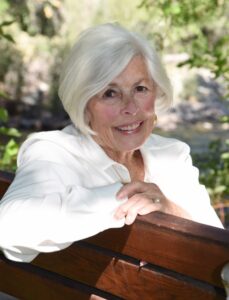BY JOELLEN COLLINS

I am now in two book clubs: one for a Zoom session today discussing a memoir by Michelle Norris published several years ago, The Grace of Silence. The author has been a host of NPR’s “All things Considered.”
Many of the issues facing both Black and other minority people are familiar to me, as I lived through the years she covers and have spent hundreds of hours learning about our troubled history. Since the absence of formal Jim Crow laws, a more informed population with more access to previously closed opportunities, and mutual concerns about our own history of racial understanding, one would hope that we have suitably progressed and become more tolerant as Americans.
Norris paints an intensely personal account of living in Birmingham, Alabama, and in Minnesota, and other northern venues. Two disturbing stories she only discovered as an adult. Her grandmother once worked as a traveling Aunt Jemima, earning a decent salary for Quaker Oats. Morris finds this upsetting, as her role was a symbol of the long-held stereotypes associated with women of color. Then, only after his death, she discovered the secret that her father, a law-abiding and disciplined man of hard work and devotion to his family, was arrested and jailed in Birmingham during an unfortunate incident. When stopped during a night out, he tried to prevent the progress of a policeman’s weapon aimed at his friend. Her father was shot in the process and, even after charges were dropped, suffered in silence for years. He never spoke of the incident.
What shocks Norris most, all these years later, is how dishonored this WWII veteran felt and hoped this incident would be buried forever. She ponders the reality that most of the Black veterans believed they were fighting for a better world, a world without the almost inbred fear, hate and anger between races. In the years after the war, little had changed in the Jim Crow South. White neighbors still entered stores in the front, and Black friends were sent around to the back-alley door before spending their money along with their more privileged acquaintances. Norris became deeply involved in the civil rights movement in the ’60s.
Also in the ‘60s (some 20-plus years after WWII), my husband and I lived in an apartment in Santa Monica, enjoying the prospect of welcoming our first baby. We invited an interracial couple for dinner. Our Black male friend had served in the war and was severely disfigured when trying to rid a steep cliff of Italian machine gunners. We enjoyed our evening. The next day our landlord put an eviction notice at our door, due to “inappropriate company” in a building he owned. Looking back, I find it odd that this action occurred in this time in a Western state. And now, decades after the triumph of WWII and the advances of the civil rights movement, we are, I fear, still exhibiting hatred and potential violence to our neighbors and fellow voters.
Makes me sad: same old, same old.



